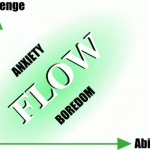Contents
A personal experience of religion, and some ongoing questions.
Losing My Religion
I was raised a Christian. My family went to church more or less every Sunday. The churches were generally old New England stone edifices, stained glass and wood pews. The services were a familiar ritual, and I murmured the prayers with everyone else. I wasn’t a devoted worshipper, but I was content to learn the Bible and believe.
Yet as I grew older, I became more and more scientifically inclined, and I noticed myself tending towards a scientistic view of the world. The Bible seemed more like a book of myths than like a living reality, compared to the fascination of how the world around us actually works. I still believed in God, but vaguely, abstractly. And I wondered, if there was only one true God, then why were there so many other religions?
My ebbing faith dried up almost completely when, in high school, I took a course on the Holocaust. I was shocked to learn how successful Hitler was at converting the Jews, in the eyes of the German people, from neighbors into nuisances. It violently depressed me and convinced me that there was no absolute good nor evil… since if there were, how could something so evil have happened? Obviously people just believe whatever they choose, I told myself, and there’s really no higher justification for behaving any particular way. If God existed, why did He allow this?
I entered into a period of serious hardcore scientism. The only reality, I decided, is whatever can be scientifically measured and analyzed, and agreed on by everyone making the measurements. We life forms are just random balls of glop on one insignificant planet, and questions like “What is the meaning of life?” are themselves meaningless, not to mention stupid. It was a pretty bleak world, in many ways.
Changing My Perception
It was a couple of years later when I read a book by D. T. Suzuki, one of the foremost English proponents of Zen Buddhism. Suzuki, trained in the centuries-long history of Zen dialogue, very skillfully undermined my anti-religious prejudices. Suzuki’s Zen riddles on the one hand perplexed and confused me, and on the other hand made meaware that ther were limits to the scientistic perspective.
If Zen is about anything, it is about the direct experience of life, and about the fundamental mystery of who we are. Some questions are not amenable to rational solution, and no amount of science will grant wisdom in life.
Through further experience with Zen, I learned about the broad thrust of Eastern religion, as stereotypically contrasted with Western religion–the Easterners contemplative and mystical, the Westerners dogmatic and fundamentalist. Zen, or more generally Buddhism, seemed to say: you are the universe divinely expressing itself. Christianity seemed to say: you are flawed and wrong, and only redeemable if you are lucky. Where Zen was individualist, Christianity seemed conformist; where Zen eschewed doctrine, Christianity sanctified it. After a few years of this I was convinced that Western religion was a crock, and that only Eastern religion offered much of interest.
This belief was enhanced when I read some of Einstein’s writings about science and religion. I recall him saying something to the effect of, if he could conceive of any religion which could coexist harmoniously with science, it would be Buddhism: a religion in which all things are divine, and in which the natural unfolding of the world is perceived as the highly miraculous thing which it is. This had a deep effect on me.
Organization’s the Root of All Evil
My anti-Christian leanings didn’t last so very long, as I started learning more about the origins of Christianity, and about the actual gospel of Christ. Much of what Christ said was very directly and simply addressed to individuals; Christianity was, in the beginning, as personal and perplexing as Zen itself. A parable I took to heart is of the Zen master who, upon hearing a translation of the Sermon on the Mount, said, “The man who said these things is very deeply enlightened.”
I began to think of the Christian tradition of my youth as only distantly related to the actual teachings of Christ. It was plain to me that much injustice had been perpetrated in the name of God–from the Crusades right through to the Nazi atrocities. I began to believe that the Church itself was at fault for these travesties of Christianity. The Church, I believed, had taken Christ’s gospel and turned it into a war banner… in order to expand its own influence, the Church gave holy sanction to all manner of horror.
Once I realized this, it was clear that much the same could be said of Buddhism. Most of Chinese and Japanese history is rife with war, plunder, and violent upheaval, and throughout all this the monasteries stayed pretty much out of the way. Organized religion and politics have always been closely allied, in East and West alike.
So is it simply that organized religion is bad? No, this matter goes deeper. Organized religion is appealing not only because of the potential power to be gained by having more people in the church, but because of the tension between religions.
There Can Be Only One…
Belief has always been a dividing line between humans. Culture, language, and religion shape one another, and define boundaries between human populations. These boundaries can widen until people on opposite sides look across and see, not other people, but aliens–creatures who are not like us, and who will take us over and destroy us if we do not destroy them first.
This tendency is especially intense where religious belief is concerned. Religions emerged out of the myths and stories that made up our earliest culture, and as most cultures were relatively isolated, the particular stories and creeds of that culture became the very foundation of who they were. Not only did they know just one story about the world, but they were ignorant that any other stories even existed–and they were unaware of how their culture had originated. In order to make sense of the world, they had to believe in their stories–believe so deeply that the stories became, for them, true.
Only in the last few hundred years have humans started to come to terms with these truths. We can see the diversity of human belief, and we are forced to question whether one religion, one culture, really does have a right to claim that it alone is truer than all others. This questioning is enormously threatening to most people on this planet, who still consider their faith their main compass in a world becoming increasingly strange. This is the most powerful force behind organized religion: organized religion is a structure which bolsters individual faith through worship with masses of fellow believers.
As long as most people are convinced that absolutist faith is the sole alternative to moral disintegration, organized religion will remain strong–and will continue to tend towards strife with other religions and peoples. Defining your belief as the One True Belief makes it hard to see others as anything but wrong.
But is it really true that without a single moral code handed down from long ago, humans will find themselves directionless and demoralized?
…Or Can There?
Perhaps morals can be separated from absolutist belief. Perhaps the idea that there are good and bad ways to live can be relieved of its dependence on the notion that that way is the one and only way for everyone and for all time.
Human moral codes have always evolved. Changing beliefs about what’s acceptable in society are a natural part of the evolution of culture. We can synthesize and grow new beliefs about how to live, merging old cultural influences with new understanding of how the world works.
The individual, personal quality of early Christianity and of Zen is an example of how spirituality and religious feeling can come from within, abiding in one’s soul without need of reinforcement from huge churches and armies. God is within us.
I think we can change our beliefs in this way. If we don’t, we will do ourselves and our planet a lot more harm. If we do, we may conceivably have destinies that we can barely imagine now–but which God intends us to achieve.
Mind you, religion is only one trouble spot. Check out The Trouble with Capitalism, or How I Stopped Worrying and Learned to Love Socialism.








